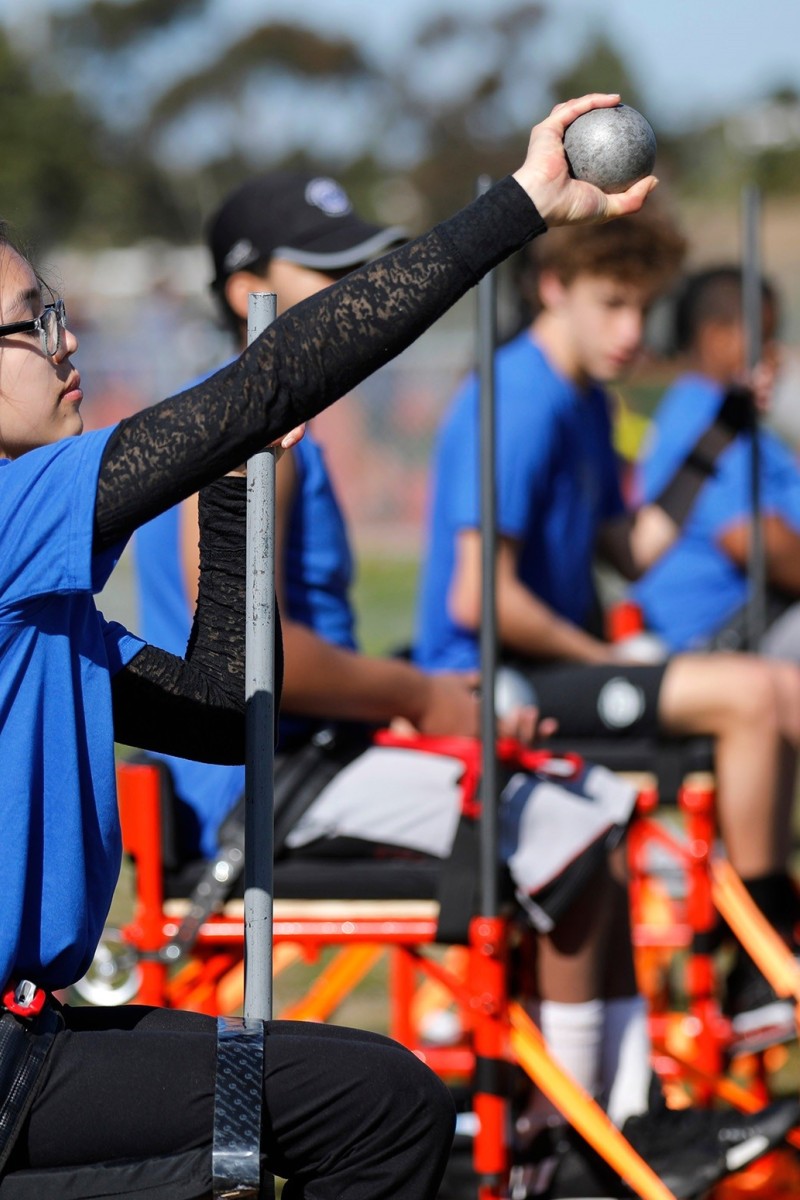
A sports programme in California gives teenage athletes with disabilities a chance to shine
Young para-athletes are getting the resources and opportunities to compete and prove to the world – and themselves – that they are forces to be reckoned with
 Ruby thought she would have to quit athletics after her brain haemorrhage. A whole new world has opened up.
Ruby thought she would have to quit athletics after her brain haemorrhage. A whole new world has opened up.Before she suffered a brain haemorrhage on July 24, 2017, Ruby Melchior was a pole vaulter on her school athletics team. But a lot has changed since then.
Ruby, now 17, had to learn to breathe, eat and talk again after her brain injury, and she now uses a wheelchair. But one thing that hasn’t changed for Ruby is her participation in track and field. A final-year secondary school student in California, she is now in training for the spring season as a seated shot put athlete. She hopes to make it to the California Interscholastic Federation (CIF) state championships in May.
Ruby’s return to athletics was made possible by San Diego’s Challenged Athletes Foundation, which on January 12 officially launched its High School Adaptive Sports Programme for secondary school students with disabilities.
Encouraging inclusiveness in Hong Kong through Kin-Ball
Under state law, students with disabilities are equally entitled to participate in athletics, but most government schools lack the adaptive equipment, coaching expertise and training time to work with the students. In 2016, CIF began allowing wheelchair and other students with disabilities to compete in championships, but participation has been minimal.
In each of the past four years, just 16 to 18 para-athletes have competed in the CIF championships. With the new programme, officials with Challenged Athletes hope these numbers will begin to grow.
“We know there are 600,000 high school students with disabilities in the US, so there are a lot of students out there who are missing out. This is the tip of the iceberg,” said Nancy Reynolds, senior director of business development for Challenged Athletes.
The new programme had a trial run last January with just eight students, including Ruby, who said she never thought she’d be able to compete again.
“I didn’t know how to participate, but I found out last year that I could,” she said. “I love this programme because it keeps me involved in school activities and it’s a way to make a lot more friends. I’m excited to start the season again.”
Joel Gomez, 16, was also looking forward to the kickoff. Born legally blind, he’s an online student at Classical Academy High School and a top-notch runner. Last year, he earned gold medals in the 400- and 1,500-metre races at the World Para Athletics Junior Championships and 11th place in the 1,500-metre race at the World Para Championships in Dubai, United Arab Emirates.
Diocesan Boys' School football captain keeps the winning streak alive
Joel said he’s excited about the programme because it empowers students and it changes the public’s perceptions about people with disabilities.
“Events like this are really important. It lets these students know there’s a place for them in the world of sport,” he said. “I like it when people are surprised when they see me run because it proves that we can compete with the best of the best.”
One of the students’ coaches is runner Kym Crosby-Hightower, 26. Visually impaired since birth, she earned a bronze medal in the 100-metre race at the 2016 Paralympic Games in Brazil. She said the programme could prove a watershed event for students with disabilities.
“I’ve talked to students who didn’t even know there were sports available to them. Knowing they can compete is huge,” she said.
“I definitely think this will increase participation in high school athletics.”
Reynolds said that in the year since they held the programme’s trial run, she has seen amazing results.
“Confidence has been the big thing for these kids, and the camaraderie I’ve seen on their track teams, and even from the teams they’re competing against, has been so special to watch,” Reynolds said. “It makes everybody better.”
